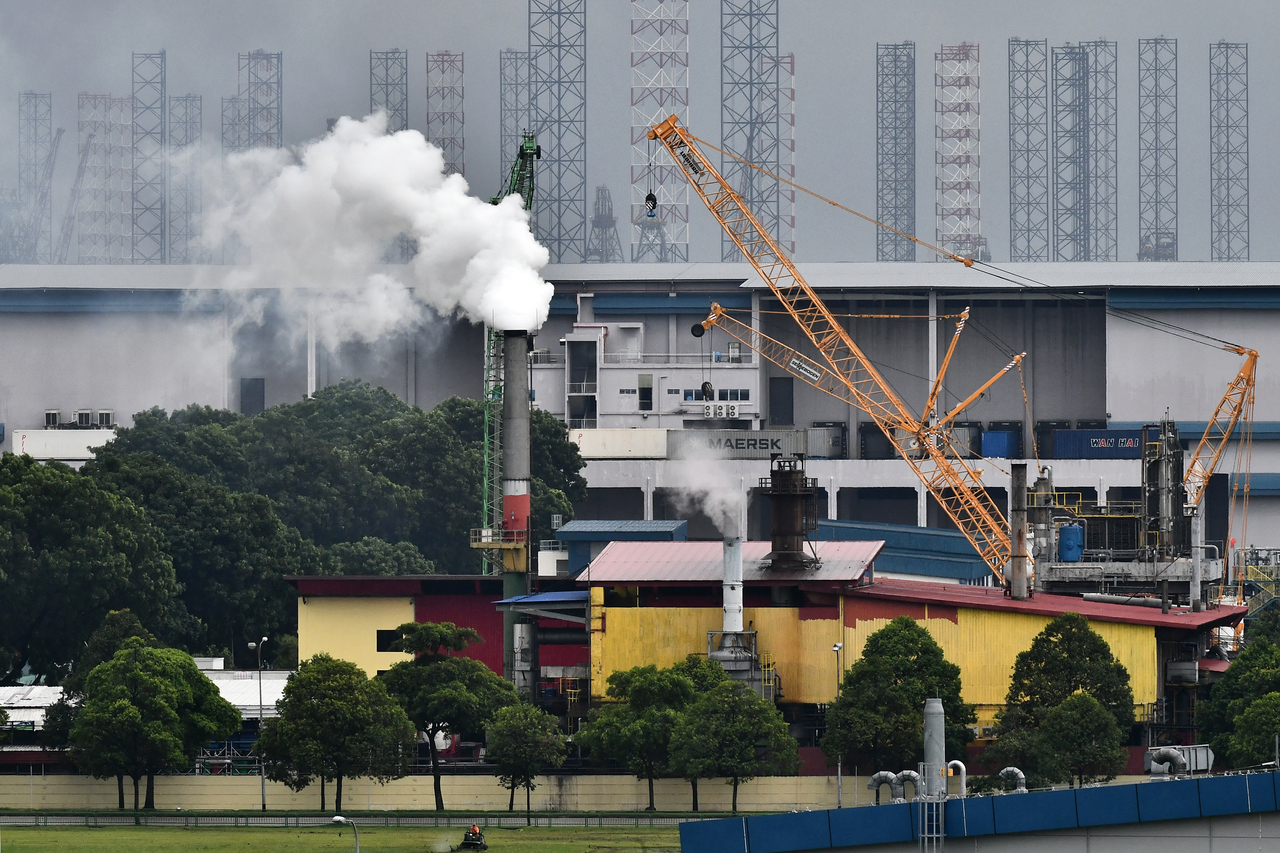New global Singapore carbon exchange and marketplace announced to help firms go greener
Sign up now: Get ST's newsletters delivered to your inbox

Climate Impact X will offer platforms and products that cater to the needs of buyers and sellers of carbon credits.
ST PHOTO: LIM YAOHUI
Follow topic:
SINGAPORE - A new global carbon exchange and marketplace will be up and running later in the year to help firms go greener and boost efforts to establish Singapore as a carbon services and trading hub.
Climate Impact X (CIX) - to be a joint venture funded by DBS Bank, Temasek, Standard Chartered and the Singapore Exchange (SGX) - was announced on Thursday (May 20). More partners will be added as it is scaled up.
Carbon trading essentially treats carbon as a commodity that can be bought and sold between less and more pollutive firms.
CIX will offer platforms and products that cater to the needs of different buyers and sellers of carbon credits.
It will allow large-scale, high-quality carbon credits to be sold through standardised contracts in an exchange, catering primarily to multinationals and institutional investors.
A broader spectrum of firms that want to participate in the voluntary carbon market will be accommodated as well with projects in a marketplace that can help them meet sustainability objectives.
These could involve protecting and restoring natural ecosystems like forests, wetlands and mangroves.
The platform will also leverage technology such as satellite monitoring, machine learning and blockchain to ensure that the carbon credits deliver a tangible environmental impact, the four partners said.
Monetary Authority of Singapore (MAS) managing director Ravi Menon noted at the virtual event held to announce the initiative: "CIX is a promising solution to the problem we face today of fragmented carbon credit markets characterised by thin liquidity and credits of questionable quality."
He added that a robust carbon market can channel funds to emission reduction and removal projects that generate the credits.
Carbon credits are tradeable certificates that represent the reduction, avoidance or removal of a certain amount of emissions from the atmosphere. Other firms can then buy these credits to offset their own hard-to-abate emissions.
Mr Menon noted that the global demand for voluntary carbon credits is expected to grow fifteenfold over the next 10 years to two billion tonnes in 2030.
Mr Mikkel Larsen, CIX interim chief executive and DBS chief sustainability officer, said: "CIX will provide a solution for corporates to address unavoidable carbon emissions in the near term and propel the development of new carbon credit projects worldwide.
"The carbon credits will also create impetus to address another grave risk of biodiversity loss and help serve local communities."
The CIX will be guided by an international advisory council, which is an independent body comprising non-governmental organisations, leading firms and project developers and academics.
It will also work with global partners to align with leading standards for quality and integrity.
DBS chief executive Piyush Gupta said: "It is becoming increasingly apparent that the world requires a carbon market of the highest international standards. As a leading global financial and trading hub, supported by strong regulatory frameworks, Singapore is well placed to lead such sustainability efforts."
Voluntary carbon markets like the CIX are necessary to accomplish a significant capital shift to markets to protect nature and enable a sustainable low-carbon transition, said StanChart group chief executive Bill Winters.
Temasek chief investment strategist Rohit Sipahimalani said: "We are pleased that the platform will help organisations to address their carbon footprints through both market and natural climate solutions."
SGX chief executive Loh Boon Chye said: "CIX will be... backed by SGX's track record as a major price discovery venue for global commodities and Singapore's strong and trusted financial infrastructure."

